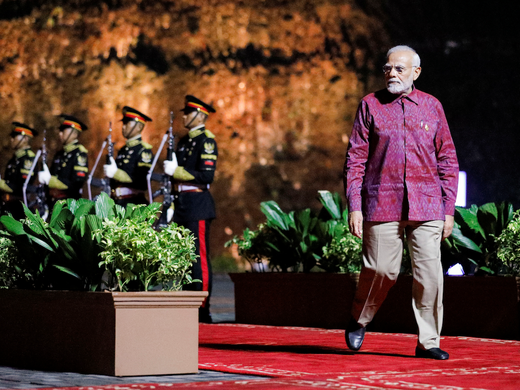The global race for artificial intelligence (AI) supremacy is intensifying, and India is well-positioned to assert its influence by nationalizing its AI and tech talent. This move is especially significant given the challenges that the United States faces in acquiring and retaining foreign-born professionals, particularly in political climates where immigration policies are subject to greater scrutiny.
The reality is that the US AI sector owes much of its ascendancy to the contributions of immigrants — a fact evidenced by statistics. More than half of leading AI companies in the United States were founded or co-founded by immigrants or their children. An Institute for Progress analysis shows that 25 out of 42 companies in the top AI-related startups in the Forbes AI 2025 list, or 60% of the list, were founded or co-founded by immigrants. The founders of these companies come from 25 countries with India leading the list with nine founders, while in academia, 70 percent of full-time graduate students in AI-related fields are international. These figures underscore a level of dependence that could become a strategic liability, should restrictive visa programs and domestic political tensions deter future talent inflows.
As the United States grapples with caps on H-1B foreign worker visas, long green card wait times and surges in nationalist rhetoric, highly skilled foreign professionals may begin exploring alternative destinations. The rise of nationalist policies has potential repercussions for institutions and industries accustomed to a steady influx of talent, particularly in fields such as AI, computer science and engineering.
China’s proactive efforts to reverse its own brain drain by offering incentives to returning scholars and entrepreneurs suggest that vibrant home markets can successfully recapture their diaspora, although the authoritarian nature of the Chinese state has made it harder for Chinese expats to move back.
India, with a large tech-savvy population and a history of sending many of its brightest minds abroad, could follow suit. By implementing policies designed to retain, repatriate or selectively deploy Indian tech professionals, the country may both strengthen its own AI infrastructure and also emerge as a central node in the international AI ecosystem.
A focus on domestic research and development (R&D), robust government funding and streamlined approval processes can form the backbone of a policy aimed at keeping top engineers and researchers on home soil. Adding perks such as performance-based bonuses, housing support and dedicated research labs would mirror the tactics adopted by China in luring back its overseas talent. India’s large and rapidly growing market offers a compelling draw for entrepreneurs, and targeted policy measures could deepen that appeal. If India positions its tech workforce as a strategic resource, it could negotiate beneficial terms with Western nations seeking skilled manpower. Advanced chip technology transfers or joint R&D programs could become part of bilateral agreements, ensuring that India’s investment in its own talent pays dividends beyond mere retention.
Viewing AI and high-level STEM (science, technology, engineering and mathematics) talent as central to national security is no longer an abstract concept. AI has critical applications in defence, health care and finance — sectors where a shortage of skilled personnel can have serious ramifications for economic stability and international competitiveness. Retaining talent ensures that technical breakthroughs, intellectual property rights and significant revenue streams stay within India’s economy rather than migrating abroad. The return on investment, measured both in monetary terms and strategic capacity, can be immense.
In the end, policies promoting the nationalization of AI and internet technology talent speak to an evolving global landscape in which knowledge — and those who possess it — are among the most valuable assets. Countries that succeed in both cultivating and preserving this talent will be better equipped to pioneer transformative technologies.
At the moment, an uneasy blend of inward-looking US immigration policies, rising nationalist sentiment and intensifying competition from players such as China has opened a window of opportunity for India. By embracing a new paradigm that emphasizes securing and utilizing its own AI talent, India can chart a path toward long-term technological leadership and ensure that it emerges as one of the most influential voices in the next wave of innovation.
This piece was first published on NDTVProfit.com.



